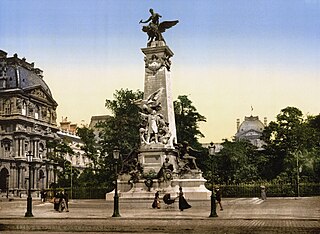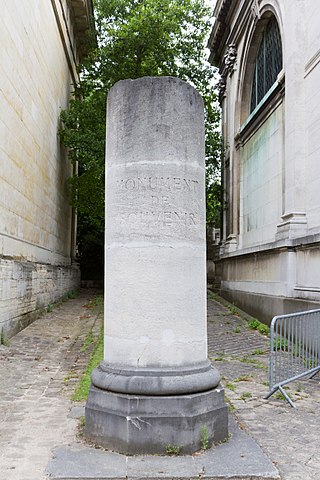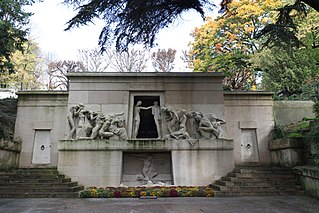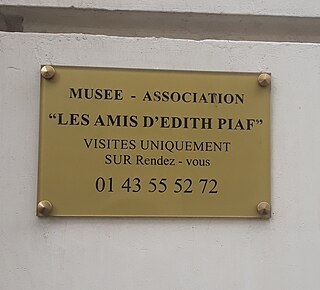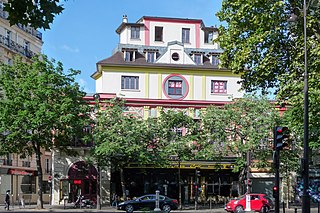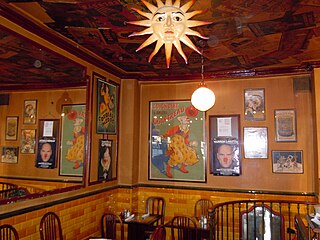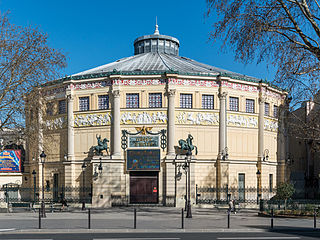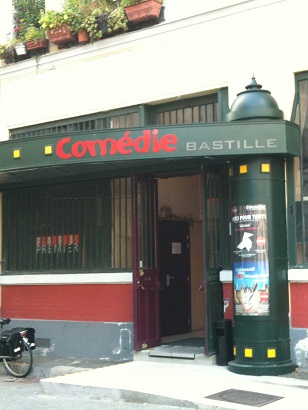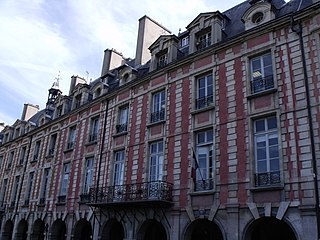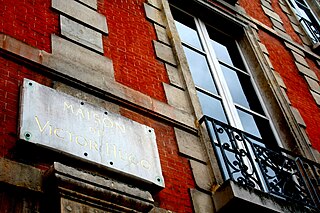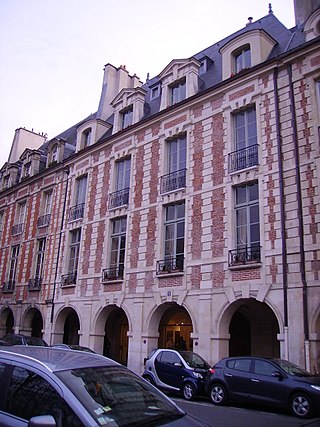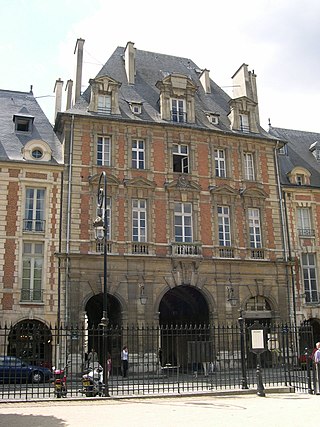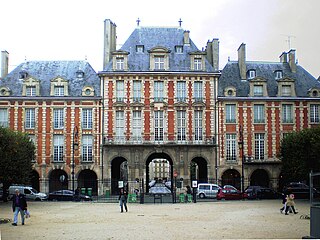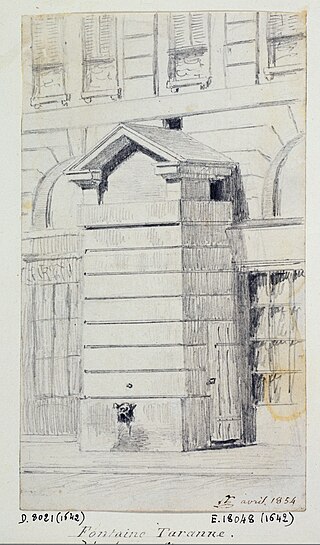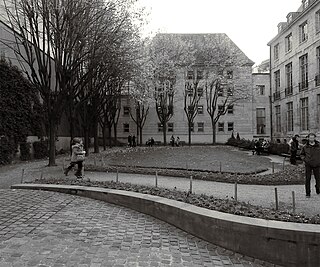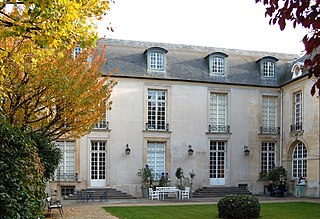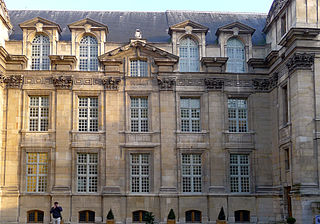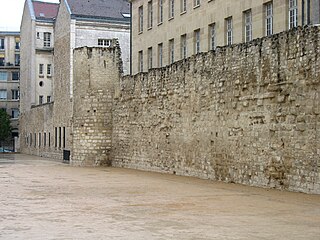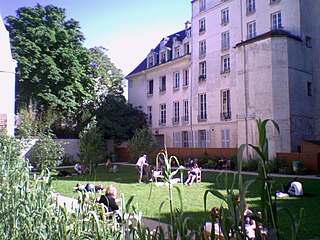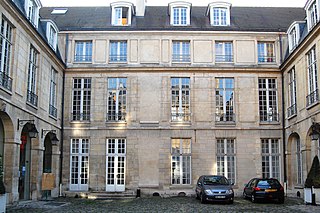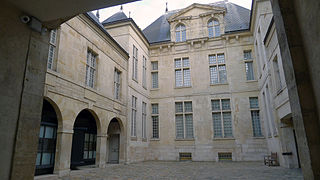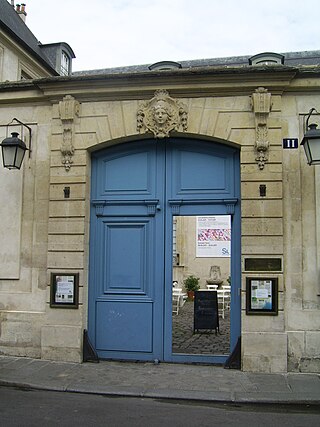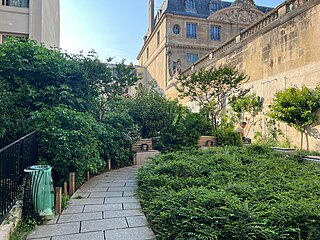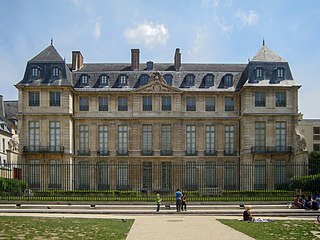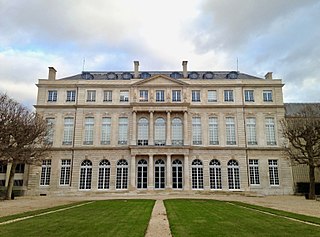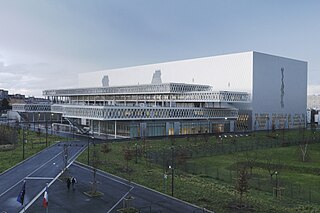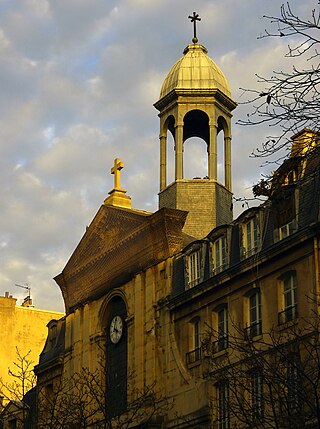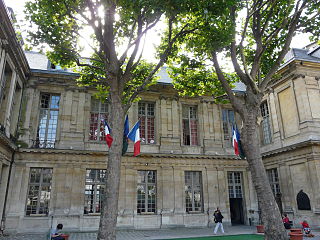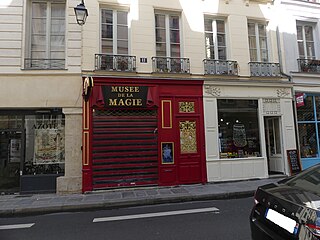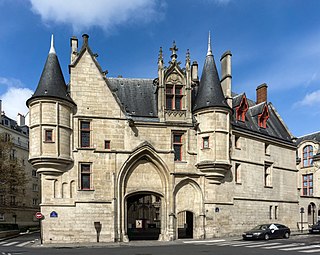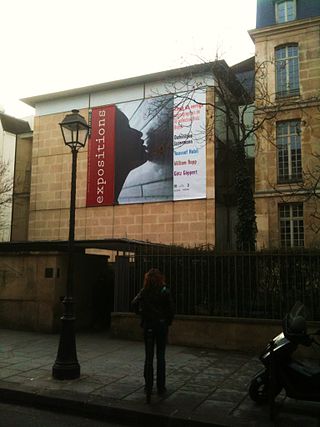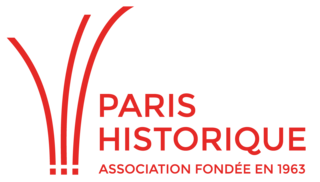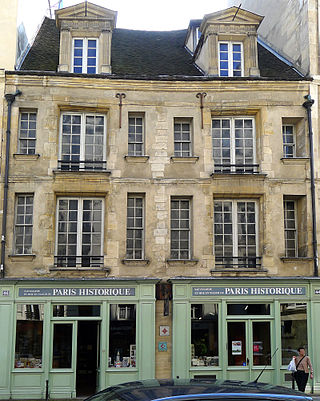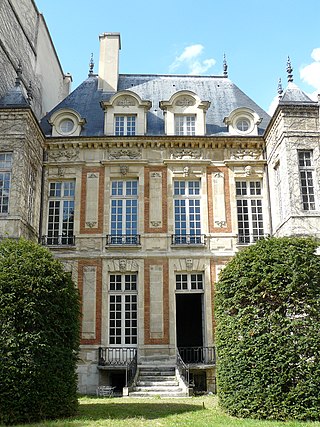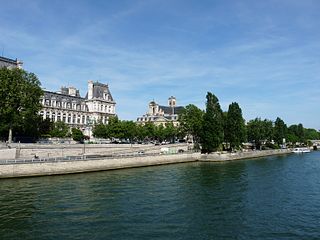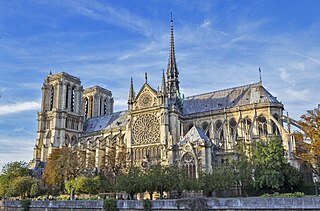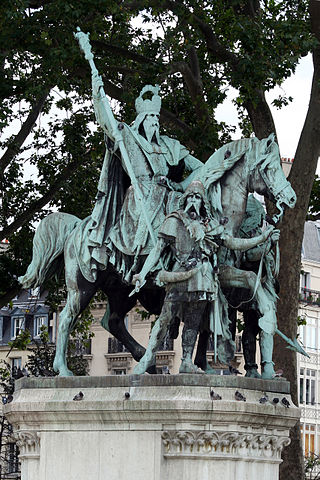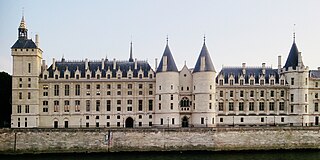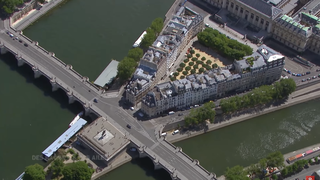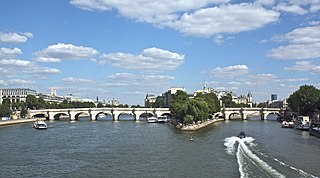Self-guided Sightseeing Tour #11 in Paris, France
Legend
Guided Free Walking Tours
Book free guided walking tours in Paris.
Guided Sightseeing Tours
Book guided sightseeing tours and activities in Paris.
Tour Facts
14.8 km
269 m
Experience Paris in France in a whole new way with our free self-guided sightseeing tour. This site not only offers you practical information and insider tips, but also a rich variety of activities and sights you shouldn't miss. Whether you love art and culture, want to explore historical sites or simply want to experience the vibrant atmosphere of a lively city - you'll find everything you need for your personal adventure here.
Activities in ParisIndividual Sights in ParisSight 1: Jardin Pierre-Seghers
The Pierre-Seghers Garden is a public garden in the 20th arrondissement of Paris, France.
Sight 2: Statue de Léon Gambetta
The Monument to Léon Gambetta by Jean-Paul Aubé, located in the Square Édouard-Vaillant, is the vestige of a larger monumental ensemble that has now been destroyed.
Sight 3: Père Lachaise Cemetery
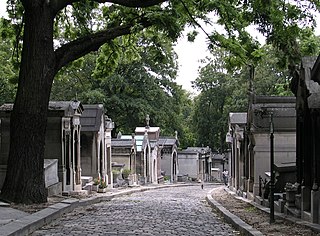
Père Lachaise Cemetery is the largest cemetery in Paris, France, at 44 hectares or 110 acres. With more than 3.5 million visitors annually, it is the most visited necropolis in the world. Notable figures in the arts buried at Père Lachaise include: Colette, Michel Ney, Miguel Ángel Asturias, Frédéric Chopin, George Enescu, Édith Piaf, Alice Harriet Blosse Lynch, Marcel Proust, Georges Méliès, Marcel Marceau, Olivia de Havilland, Sarah Bernhardt, Oscar Wilde, Madho Rao Scindia, J. R. D. Tata, Georges Bizet, Jim Morrison, Michel Petrucciani, and Sir Richard Wallace.
Sight 4: Monument du souvenir
The monument of remembrance or column of remembrance is a monument in the form of a broken column, erected in 1881 in the Père-Lachaise cemetery to collect offerings to the deceased whose concession has been taken over.
Sight 5: Monument aux morts
The war memorial in the Père-Lachaise cemetery is the work of the painter and sculptor Paul-Albert Bartholomé, inaugurated on November 1, 1899, after twelve years of work. This monument is dedicated to all the dead without distinction.
Sight 6: Basilique Notre-Dame du Perpétuel Secours
Several basilicas are named Notre-Dame-du-Perpétuel-Secours basilica in reference to Notre-Dame du Perpétuel Secours:
Wikipedia: Basilique Notre-Dame-du-Perpétuel-Secours (FR), Website
Sight 7: Jardin Toussaint Louverture
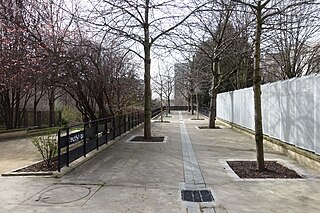
The Toussaint-Louverture garden is a green space in the 20th arrondissement of Paris.
Sight 8: Musée Edith Piaf
The Musée Édith Piaf is a private museum dedicated to singer Édith Piaf located in the 11th arrondissement at 5, rue Crespin du Gast, Paris, France. It is open by appointment; admission is free.
Sight 9: Ménagerie de Verre
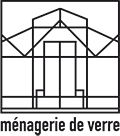
The Glass Menagerie is a French theater located on rue Léchevin, in a rebuilt printing house in the 11th arrondissement of Paris.
Sight 10: Jardinet Pihet-Beslay
The Pihet-Beslay garden is a green space in the 11th arrondissement of Paris, France.
Sight 11: Le Bataclan
The Bataclan is a theatre located at 50 Boulevard Voltaire in the 11th arrondissement of Paris, France. Designed in 1864 by the architect Charles Duval, its name refers to Ba-ta-clan, an operetta by Jacques Offenbach. Since the early 1970s, it has been a venue for rock music. On 13 November 2015, 90 people were killed in a coordinated terrorist attack in the theatre.
Sight 12: Clown-Bar
The Clown Bar is a bistro at 114 Rue Amelot in the 11th arrondissement of Paris. It has been classed as a monument historique since 1995.
Sight 13: Cirque d'Hiver
The Cirque d'Hiver de Paris, often referred to simply as the Cirque d'Hiver, is a performance hall located at 110 rue Amelot in the 11th arrondissement of Paris. Built in 1852 by the architect Jacques Hittorff, it was successively called "Cirque Napoléon" and then "Cirque National". It has been listed as a historical monument since February 10, 1975.
Sight 14: Comédie Bastille
Comédie Bastille is a Parisian theater located at 5 rue Nicolas-Appert, in the 11th arrondissement of Paris.
Sight 15: Hôtel Lafont
The Hotel Lafont is a private mansion located on the Place des Vosges in Paris, France.
Sight 16: Maison de Victor Hugo
Maison de Victor Hugo is a writer's house museum located where Victor Hugo lived for 16 years between 1832 and 1848. It is one of the 14 City of Paris' Museums that have been incorporated since January 1, 2013 in the public institution Paris Musées.
Sight 17: Hôtel Genou de Guiberville
The Hotel Genou de Guiberville is a private mansion located on the Place des Vosges in Paris, France.
Sight 18: Pavillon du Roi
The Pavillon du Roi or the Hôtel du Pavillon du Roi is a private mansion located on the Place des Vosges in Paris, France.
Sight 19: Hôtel d'Espinoy et Pavillon de la Reine
The Hôtel d'Espinoy is a private mansion located on the Place des Vosges in Paris, France.
Sight 20: La Fontaine de la Charité
The Fontaine de la Charité, also known as the Fontaine Taranne, is a former public fountain built in 1675, in Paris, on the north side of the rue Taranne. It was demolished in 1873.
Sight 21: Jardin de l'hôtel-Lamoignon - Mark-Ashton
The garden of the Hôtel-Lamoignon - Mark-Ashton, or garden of the Bibliothèque-Historique, is a public garden located on rue des Francs-Bourgeois in Paris.
Sight 22: Hôtel de Marle
The Hôtel de Marle is a mansion located in the heart of the Parisian district of Marais, between rue Elzévir and rue Payenne.
Sight 23: Hôtel de Lamoignon
The Hôtel de Lamoignon, earlier the Hôtel d'Angoulême, is a late 16th-century hôtel particulier, or grand townhouse, in the Marais district of the 4th arrondissement of Paris, France. It is the best preserved house from this period in Paris. Since 1969 it has been the home of the Bibliothèque Historique de la Ville de Paris and its garden, Hôtel-Lamoignon - Mark Ashton Garden, is opened to the public.
Sight 24: Enceinte de Philippe-Auguste
The Wall of Philip Augustus is the oldest city wall of Paris (France) whose plan is accurately known. Partially integrated into buildings, more traces of it remain than of the later fortifications.
Sight 25: Jardin des Rosiers – Joseph-Migneret
The Jardin des Rosiers - Joseph-Migneret, formerly known as the Francs-Bourgeois - Rosiers Garden, is a green space in the 4th arrondissement of Paris.
Wikipedia: Jardin des Rosiers – Joseph-Migneret (FR), Website
Sight 26: Hôtel de Coulanges
The Hôtel de Coulanges is a mansion on the rue des Francs-Bourgeois, in Paris, France. Built for Jean-Baptiste Scarron between 1627 and 1634, it belonged to the Coulanges family from 1640 to 1662. The most famous figure in this family, Marie de Rabutin-Chantal, the future Madame de Sévigné, lived there for a few years, until her marriage.
Sight 27: Musée Cognacq-Jay
The Musée Cognacq-Jay is a museum located in the Hôtel Donon in the 3rd arrondissement of Paris.
Sight 28: Institut suédois
The Swedish Institute, formerly known as the Swedish Cultural Centre, has been located in Paris, in the Hôtel de Marle, located in the Marais district, no. 11 rue Payenne, since 1971.
Sight 29: Jardin Berthe Weill
The Berthe-Weill garden is a green space in the 3rd arrondissement of Paris.
Sight 30: Musée national Picasso-Paris
The Musée Picasso is an art gallery located in the Hôtel Salé in rue de Thorigny, in the Marais district of Paris, France, dedicated to the work of the Spanish artist Pablo Picasso (1881–1973). The museum collection includes more than 5,000 works of art and tens of thousands of archived pieces from Picasso's personal repository, including the artist's photographic archive, personal papers, correspondence, and author manuscripts. A large portion of items were donated by Picasso's family after his death, in accord with the wishes of the artist, who lived in France from 1905 to 1973.
Sight 31: Hôtel de Rohan
The Hôtel de Rohan, built by the architect Pierre-Alexis Delamair, from 1705 for the de Rohan family, now houses, with the adjoining Hôtel de Soubise, part of the National Archives. This monument, located at the corner of Rue Vieille du Temple and Rue des Quatre Fils, has been classified as a historical monument since 27 November 1924.
Sight 32: Archives Nationales
The National Archives hold the archives of the central organs of the French State, with the exception of the collections of the Ministry of the Armed Forces, the Ministry of the Economy and Finance and the Ministry of Foreign Affairs. They were created by decree of the Constituent Assembly in 1790. This national service has been under the Ministry of Cultural Affairs since the creation of the latter in 1959. The headquarters of the Archives are located in Pierrefitte-sur-Seine but some collections are kept in Paris. These two sites preserve a total of 373 linear km of archives documenting the history of France from the seventh century to the present day.
Sight 33: Cloître des Billettes
The Church of Les Billettes is a Lutheran church located at 22 rue des Archives in the 4th arrondissement of Paris. Built as a Catholic church in the 18th century, it adjoins the 15th century cloister of the Abbey of the Hospitaliers of the Charity of Notre Dame, also known as the Billettes. The 15th century church was demolished, except for the cloister, and replaced by the new church In 1808, Under Napoleon I, it became a Protestant Lutheran church.
Sight 34: Hôtel de Chavigny
The Hôtel de Bouthillier de Chavigny, or Hôtel de Chavigny, is located at 9, rue de Sévigné in the 4th arrondissement of Paris.
Sight 35: Musée de la Magie
The Musée de la Magie, also known as the Musée de la Curiosité et de la Magie and the Académie de la Magie, is a private museum located in the 4th arrondissement at 11, rue saint Paul, Paris, France. It is open several afternoons per week; an admission fee is charged.
Sight 36: Hôtel de Sens
The Hôtel de Sens or Hôtel des archevêques de Sens is a 16th-century hôtel particulier, or private mansion, in the Marais, in the 4th arrondissement of Paris, France. It nowadays houses the Forney art library.
Sight 37: Jardin Albert-Schweitzer
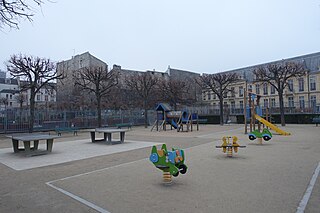
The Square Albert-Schweitzer is a green space in the 4th arrondissement of Paris, in the Saint-Gervais district.
Sight 38: Maison Européenne de la Photographie
The Maison Européenne de la Photographie, located in the historic heart of Paris, is a center for contemporary photographic art opened in February 1996.
Wikipedia: Maison européenne de la photographie (EN), Website
Sight 39: Cour administrative d'appel
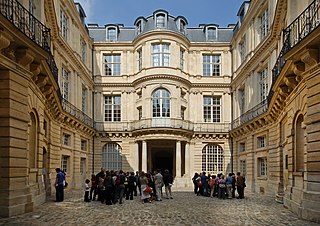
The Hôtel de Beauvais is a hôtel particulier, a kind of large townhouse of France, at 68 rue Francois-Miron, 4th arrondissement, Paris. Until 1865 rue Francois-Miron formed part of the historic rue Saint Antoine and as such was part of the ceremonial route into Paris from the east. The hotel was built by the royal architect Antoine Le Pautre for Catherine Beauvais in 1657. It is an example of eclectic French Baroque architecture.
Sight 40: Association Paris Historique
Paris historique is an association under the law of 1901 born in the Marais, a Parisian district located in the 3rd and 4th arrondissements. It has been recognized as a public utility since November 10, 2015.
Sight 41: Hôtel d'Ourscamp
The Hôtel d'Ourscamp, also known as the Maison de Marsande, or Maison de l'Ours, is a historic building located at Nos. 44 and 46, rue François-Miron in the 4th arrondissement of Paris, France.
Sight 42: Hôtel de Chalon-Luxembourg
The Hôtel de Chalon-Luxembourg is a private mansion located at 26, rue Geoffroy-l'Asnier, in the 4th arrondissement of Paris, built from 1625 in the Parisian district of the Marais. It is the property of the City of Paris and was classified as a historical monument in 1977.
Sight 43: Square Federico-García-Lorca
The Federico García Lorca Garden is a public park situated on the 4th arrondissement of Paris, in the heart of the French capital.
Sight 44: Cathedral of Notre Dame
Notre-Dame de Paris, often referred to simply as Notre-Dame, is a medieval Catholic cathedral on the Île de la Cité, in the 4th arrondissement of Paris, France. The cathedral, dedicated in honour of the Virgin Mary, is considered one of the finest examples of French Gothic architecture. Several attributes set it apart from the earlier Romanesque style, particularly its pioneering use of the rib vault and flying buttress, its enormous and colourful rose windows, and the naturalism and abundance of its sculptural decoration. Notre-Dame is also exceptional for its three pipe organs and its immense church bells.
Sight 45: Crypte Archéologique du Parvis Notre-Dame
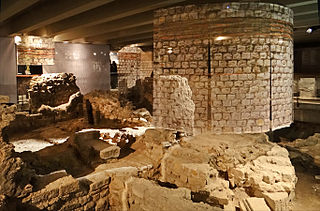
The Archaeological Crypt of the Île de la Cité, formerly the archaeological crypt of the Notre-Dame square, is a museum of the City of Paris, located just under the square in front of Notre-Dame Cathedral, in the Notre-Dame district of the 4th arrondissement. The site presents archaeological remains from Antiquity to the nineteenth century, discovered during excavations carried out in the 1960s and 1970s, before the construction of an underground car park.
Wikipedia: Crypte archéologique du parvis Notre-Dame (FR), Website, Website En
Sight 46: Point Zero for French Road Measurements
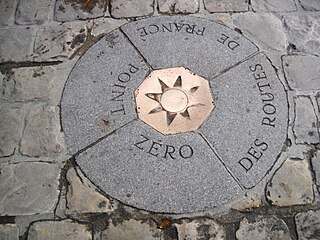
The zero point of the roads of France is the zero point of Paris, i.e. the kilometer point 0 of the roads leaving the capital, which is used as a reference for the calculation of distances from other cities in France. It is located on the square in front of Notre-Dame, in front of the Notre-Dame de Paris cathedral.
Sight 47: Charlemagne et ses leudes
Charlemagne et ses Leudes, generally translated as Charlemagne and His Guards or Charlemagne and His Paladins, is a monumental bronze statue situated on the plaza (parvis) in front of Notre-Dame, in the 4th arrondissement of Paris, France. A joint work by the brothers Louis Rochet (1813-1878) and Charles Rochet (1815-1900), it was cast at the art foundry Fonderie Thiébaut Frères.
Sight 48: Conciergerie
The Conciergerie is a former courthouse and prison in Paris, France, located on the west of the Île de la Cité, below the Palais de Justice. It was originally part of the former royal palace, the Palais de la Cité, which also included the Sainte-Chapelle. Two large medieval halls remain from the royal palace. During the French Revolution, 2,780 prisoners, including Marie Antoinette, were imprisoned, tried and sentenced at the Conciergerie, then sent to different sites to be executed by the guillotine. It is now a national monument and museum.
Sight 49: Place Dauphine
The Place Dauphine is a public square located near the western end of the Île de la Cité in the first arrondissement of Paris. It was initiated by Henry IV in 1607, the second of his projects for public squares in Paris, the first being the Place Royale. He named it for his son, the Dauphin of France and future Louis XIII, who had been born in 1601. From the "square", actually triangular in shape, one can access the middle of the Pont Neuf, a bridge which connects the left and right banks of the Seine by passing over the Île de la Cité. A street called, since 1948, Rue Henri-Robert, forty metres long, connects the Place Dauphine and the bridge. Where they meet, there are two other named places, the Place du Pont-Neuf and the Square du Vert-Galant.
Sight 50: Pont Neuf
Get Ticket*The Pont Neuf is the oldest standing bridge across the river Seine in Paris, France. It stands by the western (downstream) point of the Île de la Cité, the island in the middle of the river that was, between 250 and 225 BCE, the birthplace of Paris, then known as Lutetia and, during the medieval period, the heart of the city.
Share
Disclaimer Please be aware of your surroundings and do not enter private property. We are not liable for any damages that occur during the tours.
GPX-Download For navigation apps and GPS devices you can download the tour as a GPX file.
